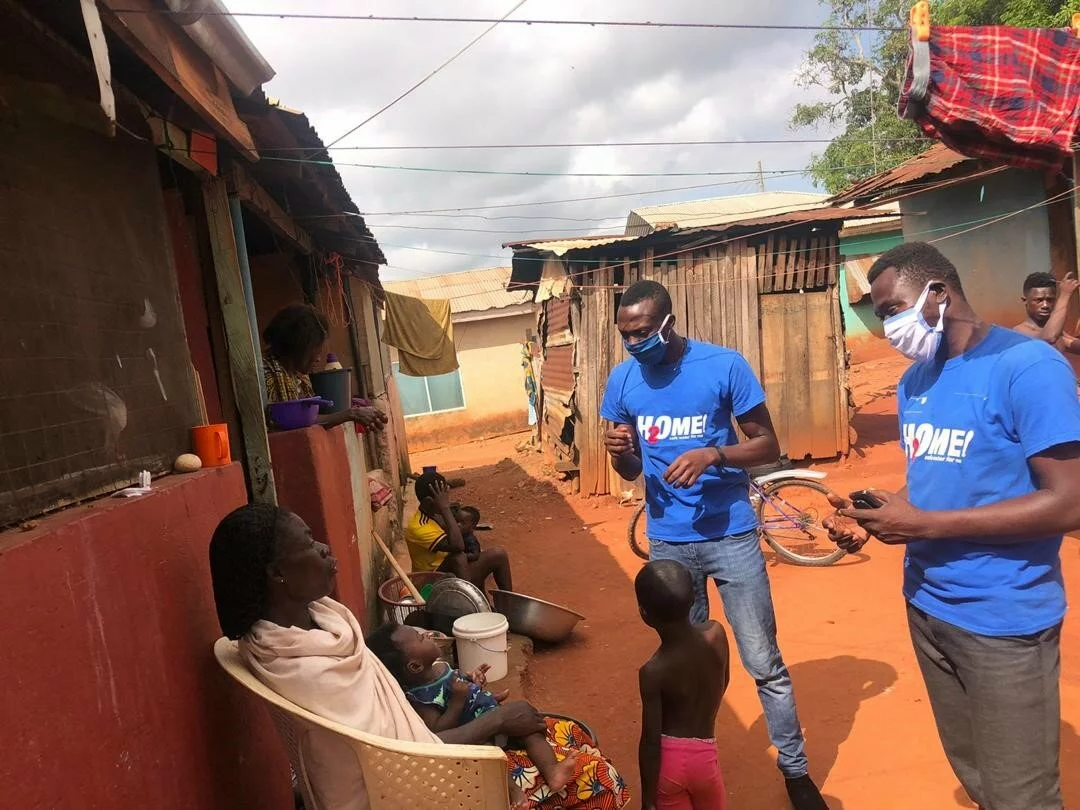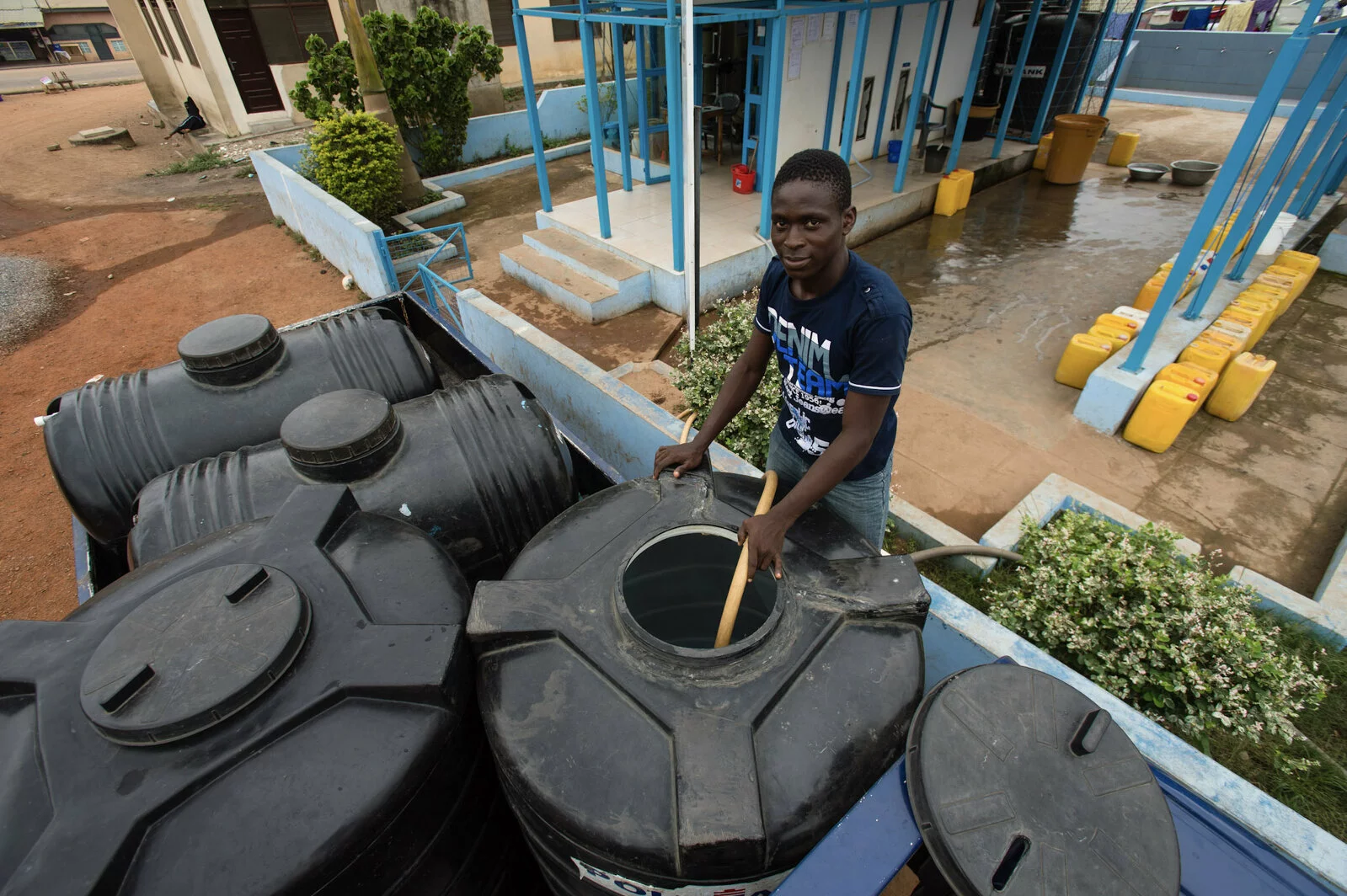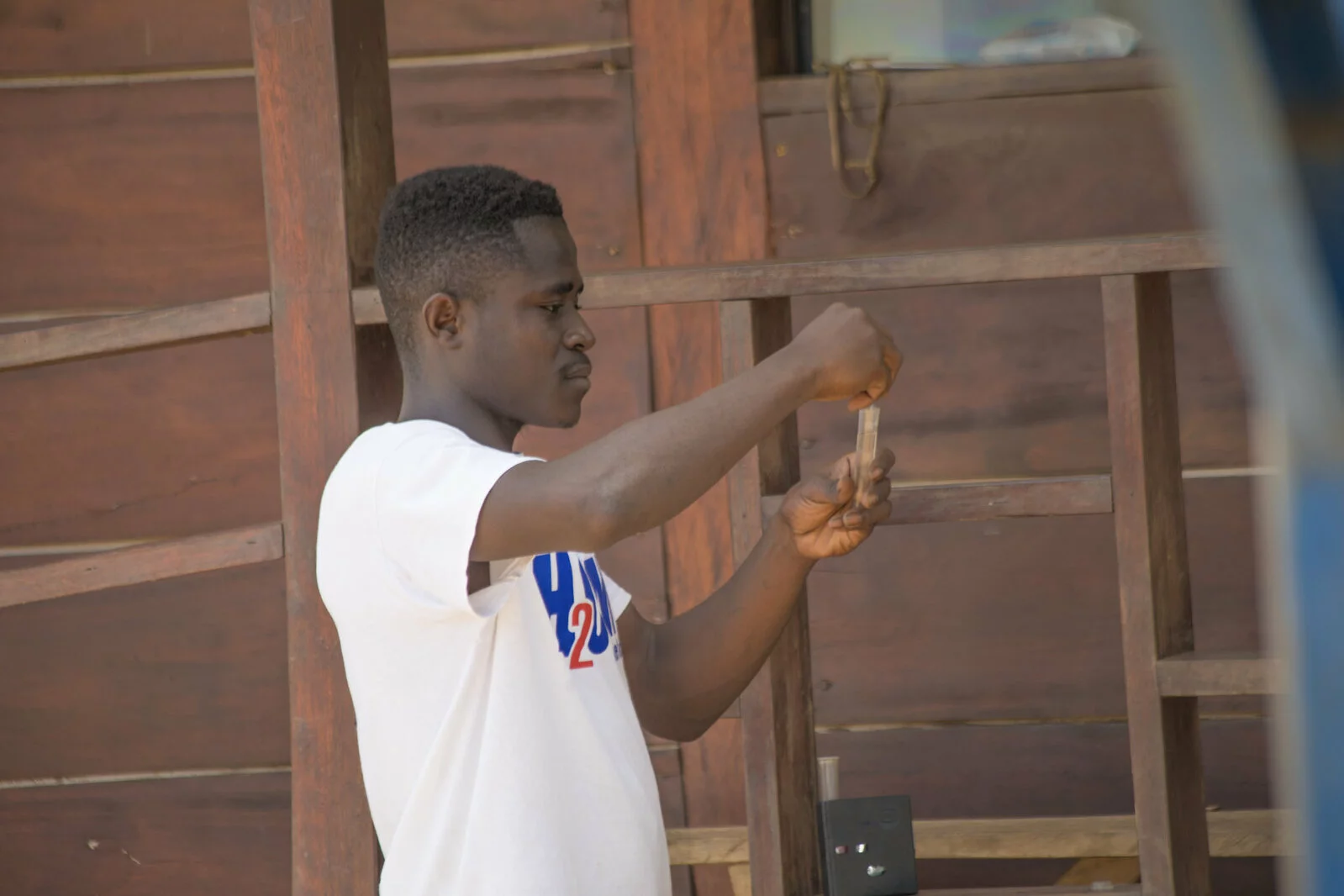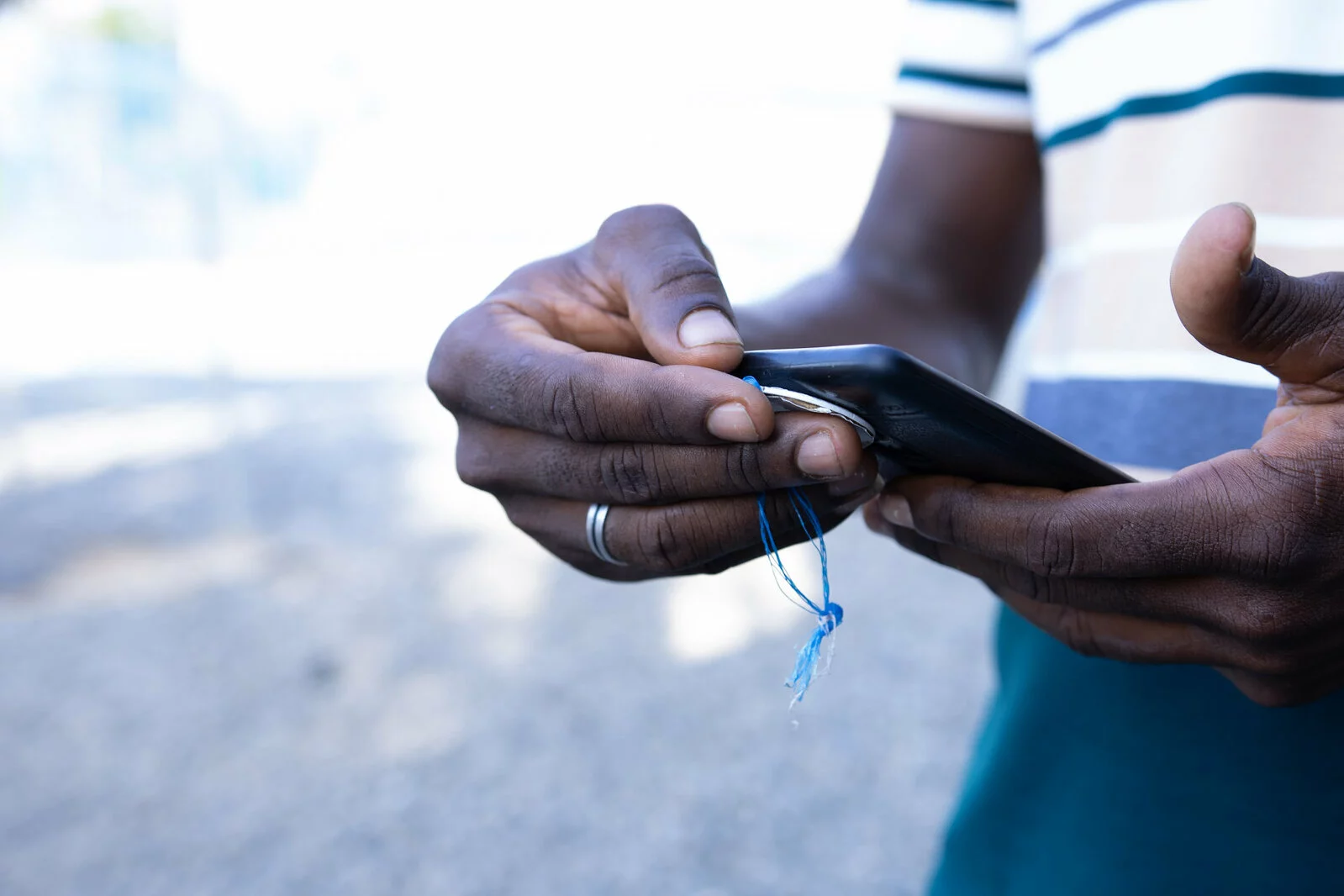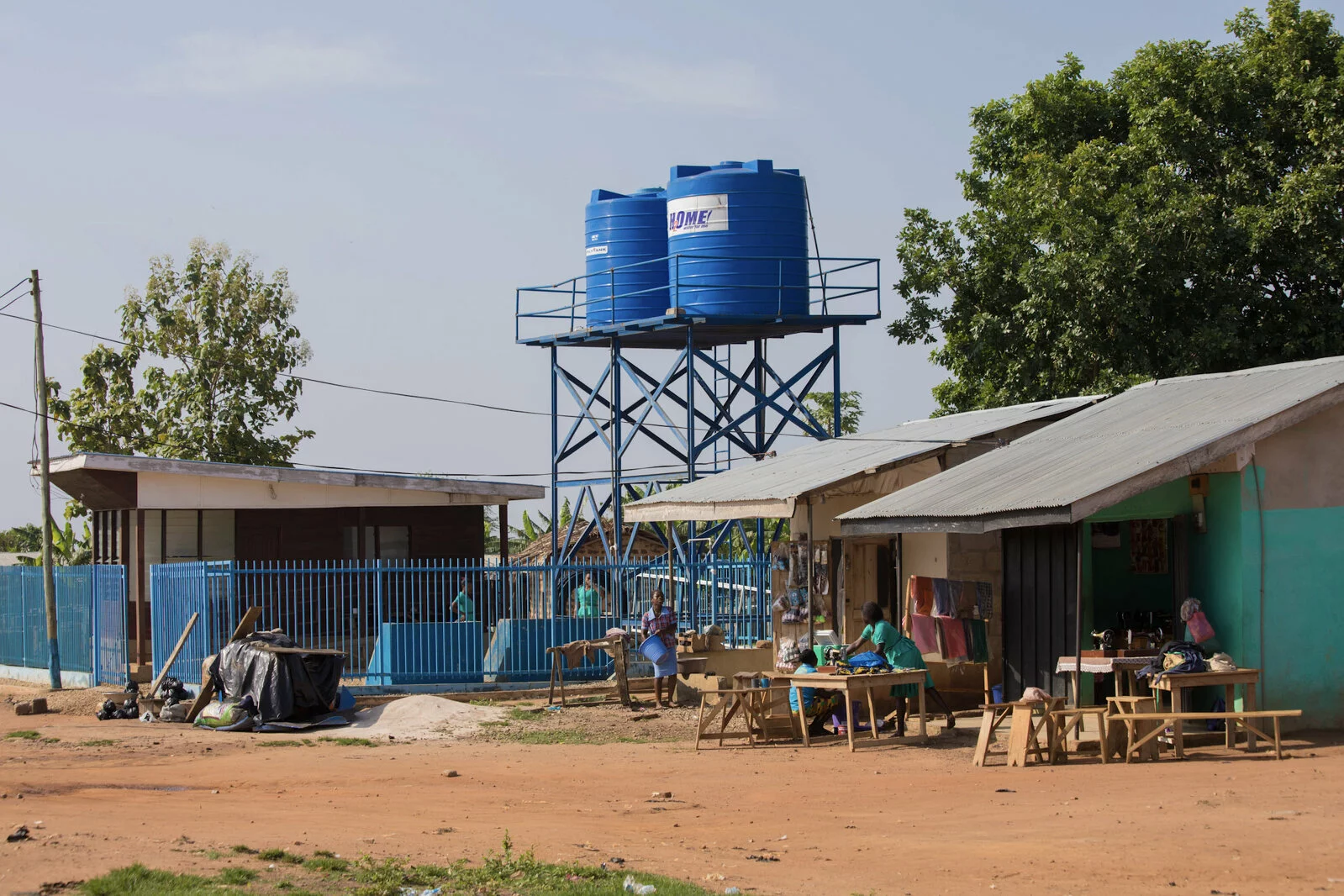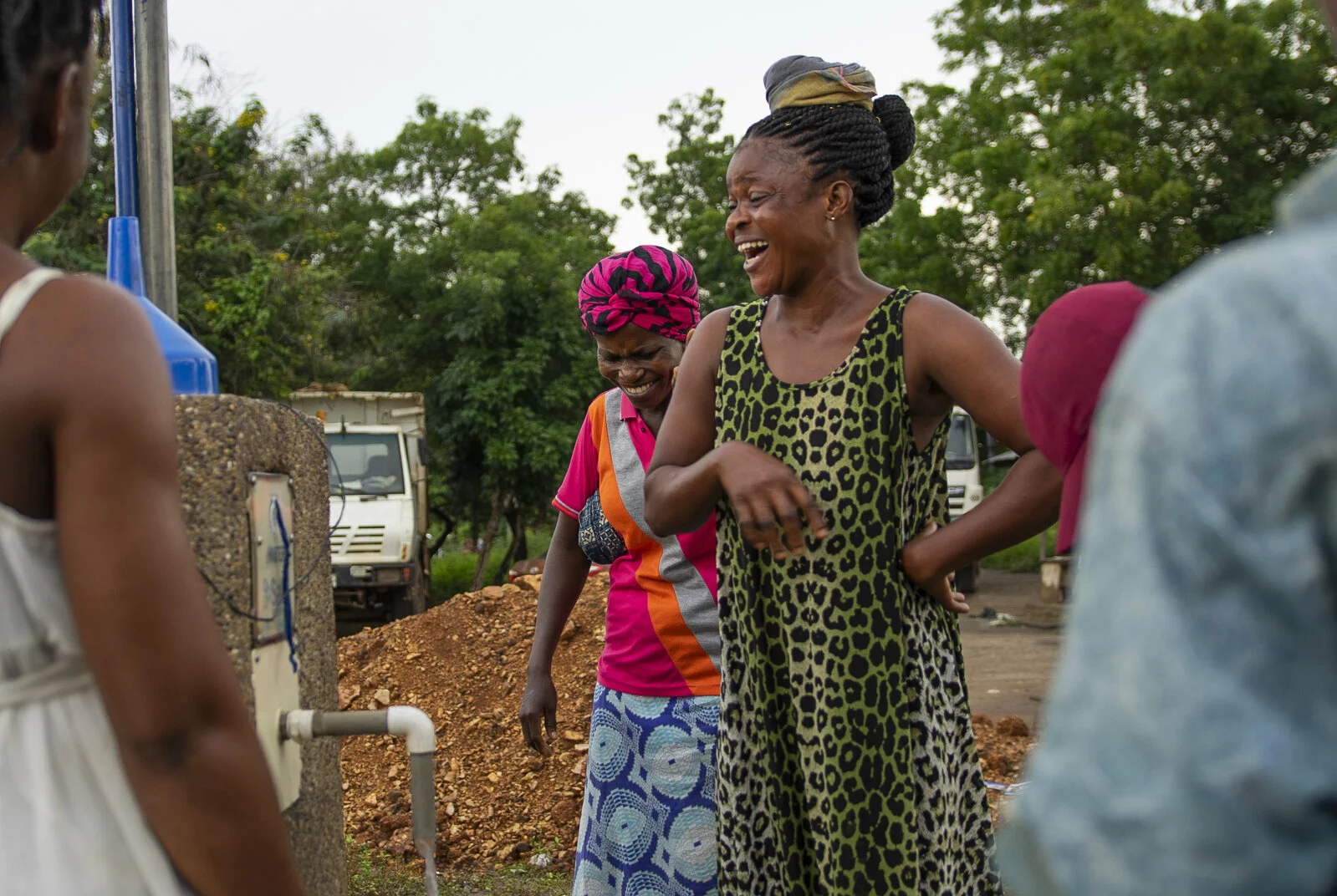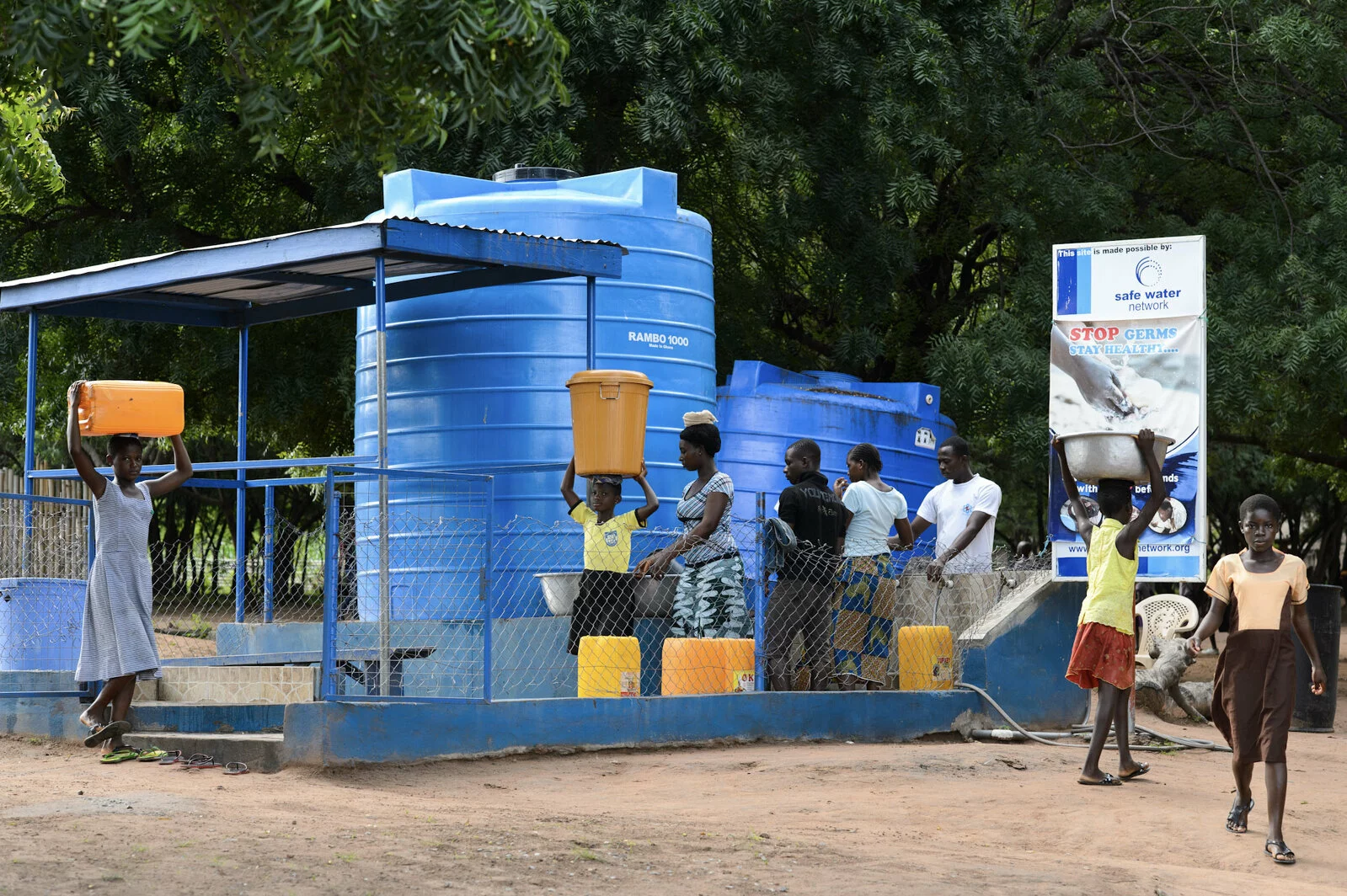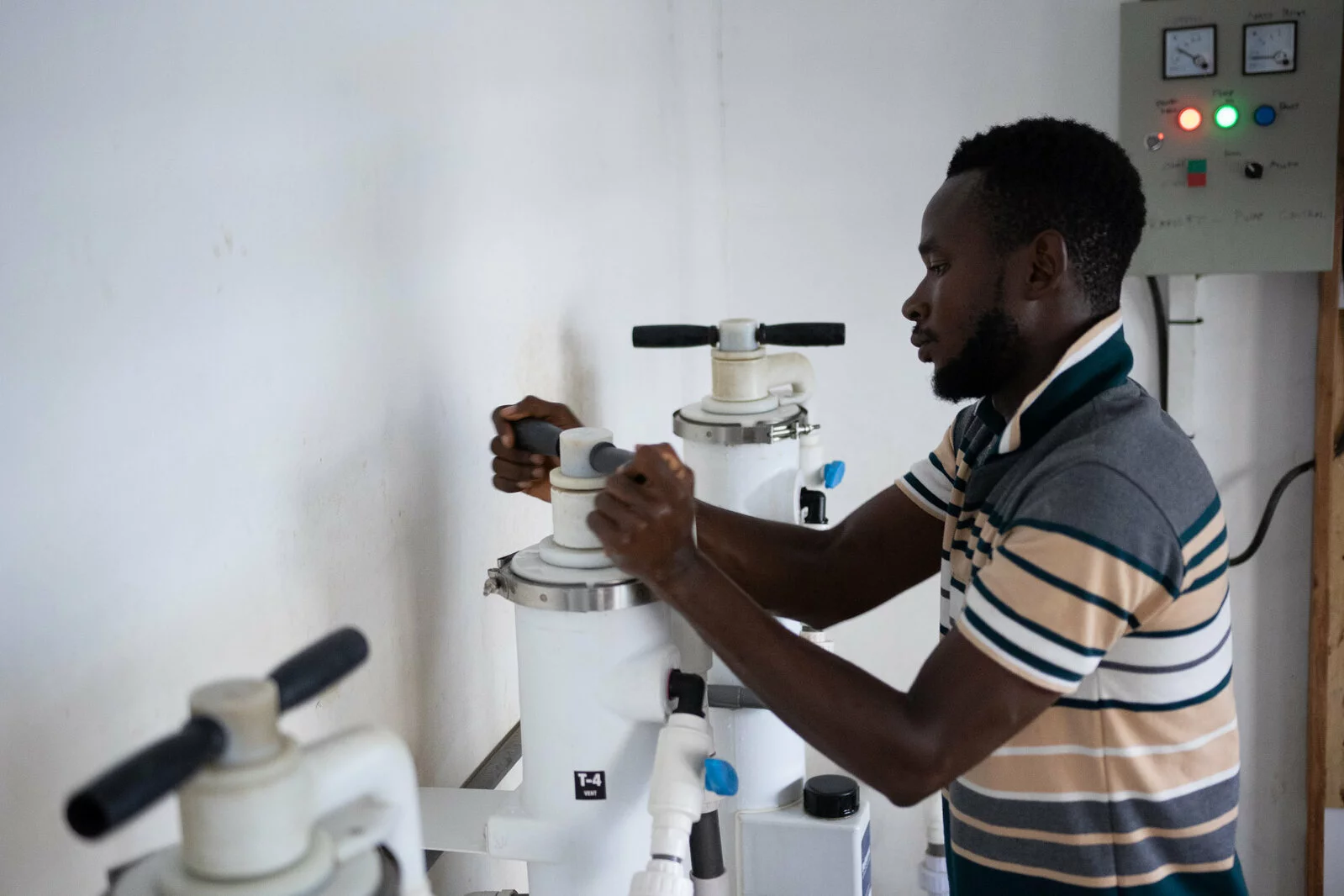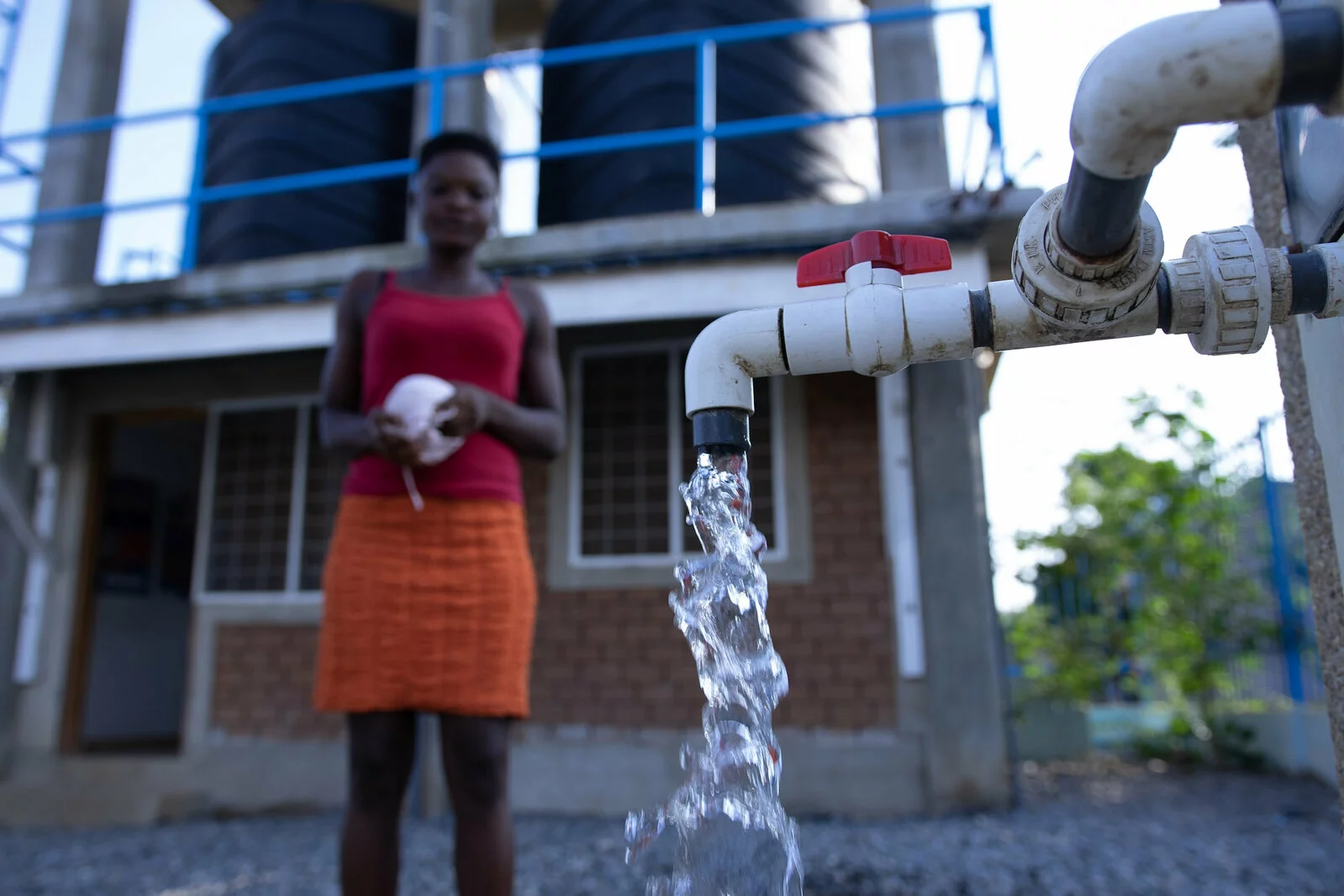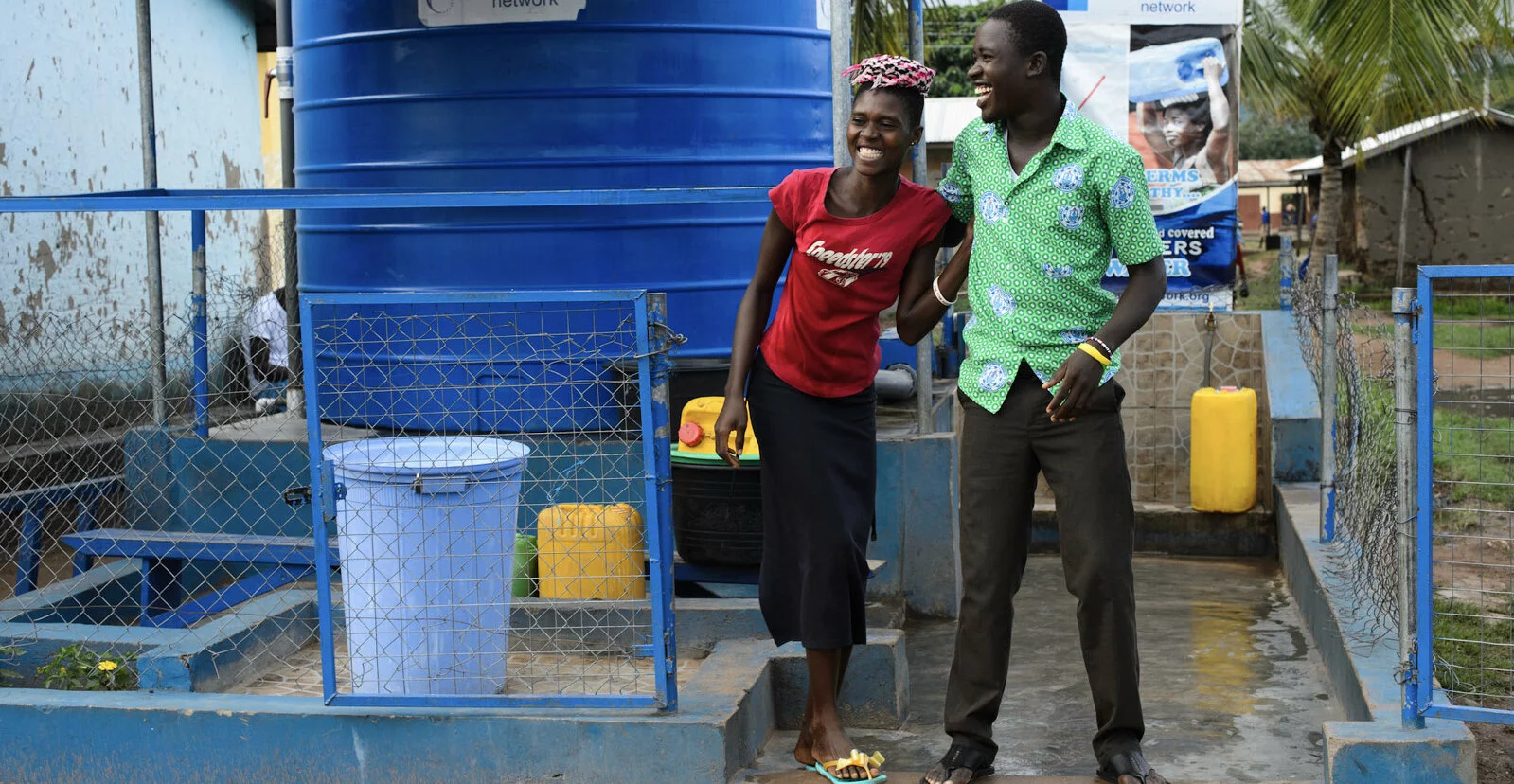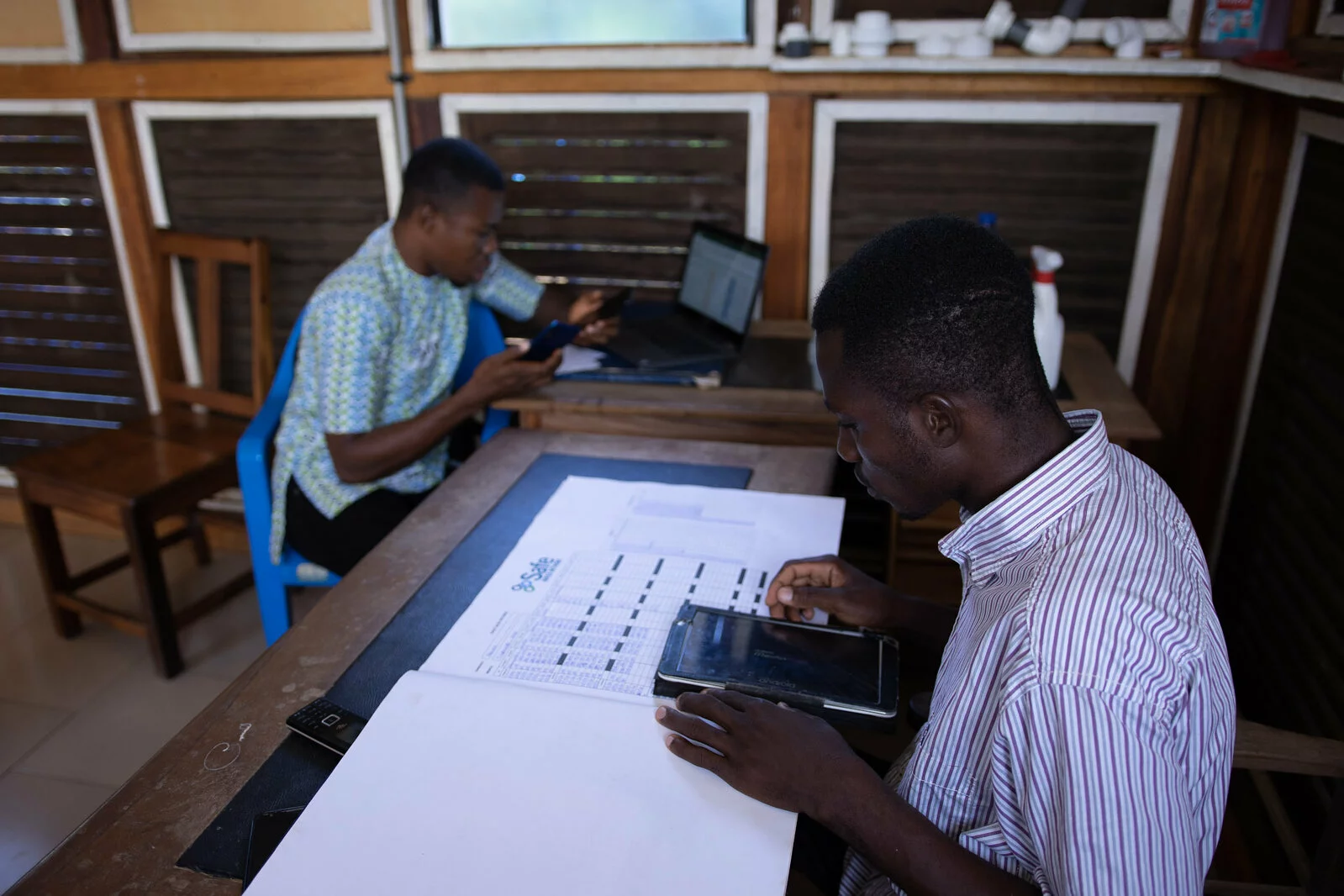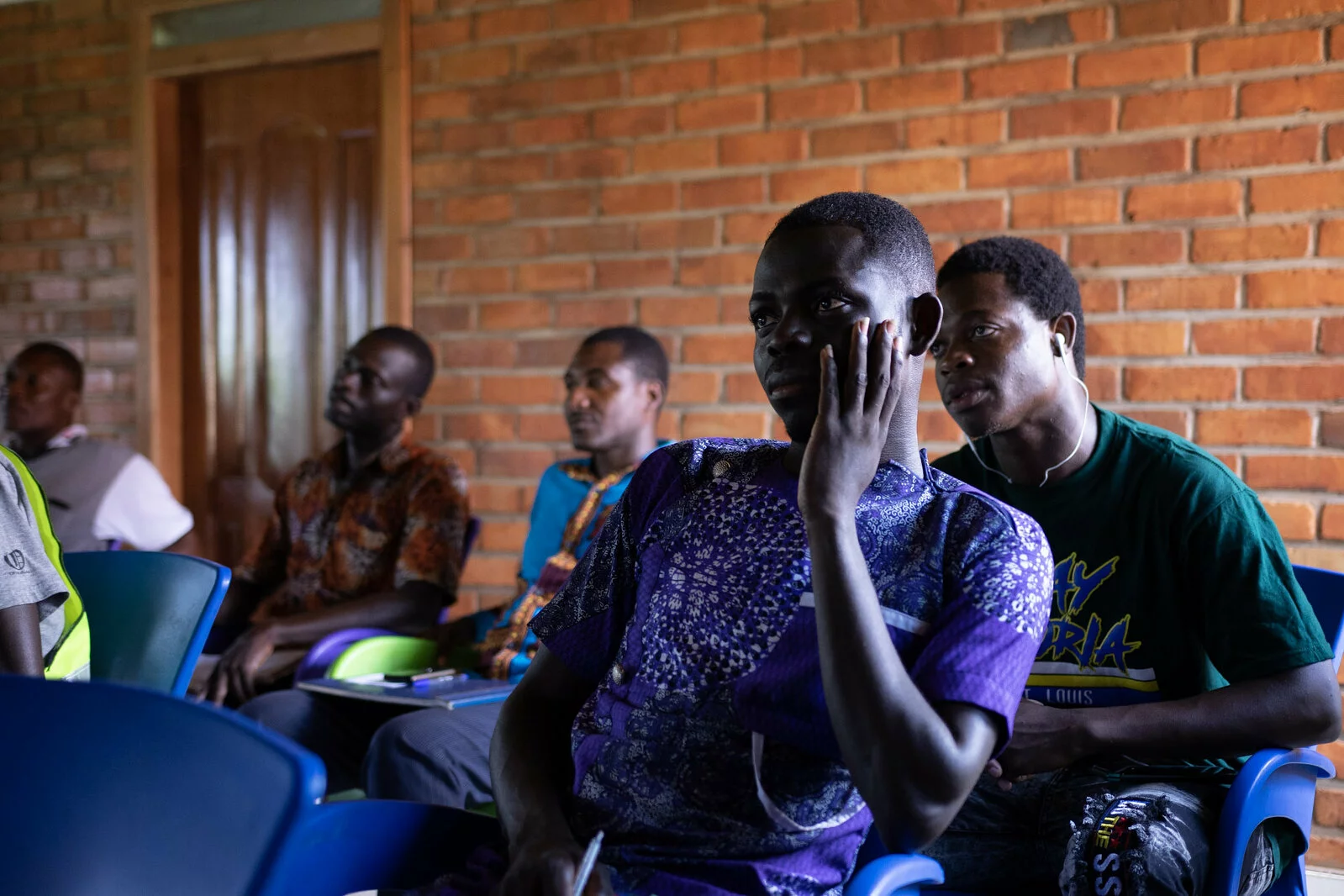Social Impact Study on Piped-Connection Services for Safely Managed Water
By: Lauren Cuscuna | Joseph Sam Cherbu | Charles Yeboah | Elliot Abra
Safely managed water reduces the need to store water and the number of trips to collect water. Convenience promotes consumption, which leads to greater social benefits. In an analysis of the purchasing patterns of over 1,000 customers at 58 Safe Water Network Ghana H2OME! stations, piped-connection customers consumed up to four times the amount of water as standpipe customers.
In light of these benefits, Safe Water Network Ghana prioritized the expansion of our on-premise piped-connection service, which delivers water to households, schools, clinics, and commercial businesses. In 2020, we launched a project to build one new station and retrofit three existing stations. Optimized Piped Connection (OPC) stations are designed with a distribution network that extends throughout the community to make the cost of the connections to the home equitable. We set up a dedicated sales team to accelerate the uptake of connections. We also built a sales tracking mobile app that uses geographic information system (GIS) asset mapping to provide the sales team with automated and accurate pricing for connections. We selected Bomfa Achiase, a community of 3,700 people in the Ashanti region, to conduct a pre-post study of 60 consumers surveyed on consumption patterns and perceptions.
Key Findings
- Customers with piped connections greatly reduce the number of visits to groundwater and community standpipe sources. The number of trips for sachet water and rainwater are less affected.
- Piped-connection customers save an average of 309 minutes/week with reduced trips to groundwater and community standpipe sources.
- Respondents reported increases to their subjective well-being on topics related to finances, health, quality time, and life as a woman.
- Perception of benefits also increased for piped-connection customers.
- Customer satisfaction was high among those who received the piped-connection service.
Supporting resources
https://washdata.org/monitoring/drinking-water
